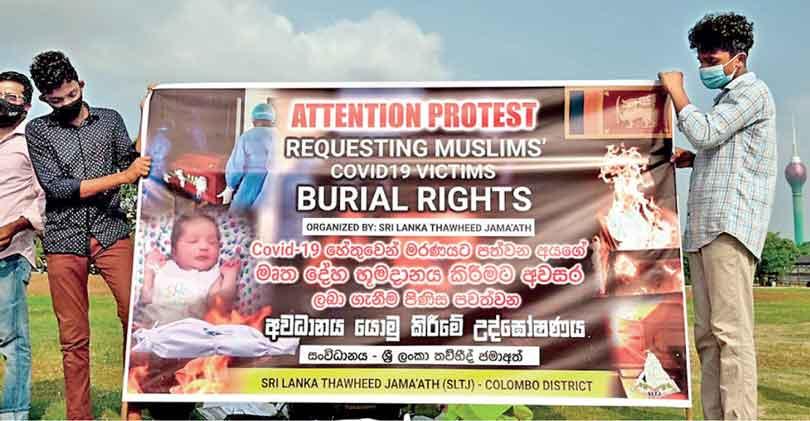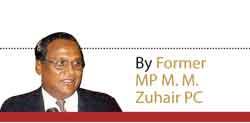19 Jan 2021 - {{hitsCtrl.values.hits}}

 If Ukrainian tourists can be allowed into the country knowing the risks, why cannot burials with no such risks be permitted?
If Ukrainian tourists can be allowed into the country knowing the risks, why cannot burials with no such risks be permitted?
If Sri Lankan medical authorities could permit planeloads of Ukrainian tourists to land in Sri Lanka and visit multiple places in the country, knowing very well that the risk of spreading COVID-19 is very high, there is no acceptable reason to deny Sri Lankans the choice of the right to a dignified burial for their loved ones, who die due to COVID-19. That too in the backdrop of the presently established scientific knowledge that there is no provable risk in burials, permitted and practised, for close upon one year now, in 190 countries worldwide!
Is it not true that at least five of these tourists were COVID-19 infected? Is not the ‘bubble’ concept of exclusivity an explodable bubble?
Without in any manner belittling the government’s efforts to revive the much-affected tourist and hospitality industries, by restoring a semblance of normalcy, notwithstanding the dangerous risk of a foreign Covid cluster emerging, we need to raise certain questions. Is it not true that at least five of these tourists were COVID-19 infected? Is not the ‘bubble’ concept of exclusivity an explodable bubble? What is it that prevents the Sri Lankan health authorities restoring their credibility as a scientific community by permitting what the large majority amongst them had clearly declared that burial poses no threat of coronavirus spreading?
Schools must reopen notwithstanding the foreseeable risk of COVID-19 spreading! Offices must function notwithstanding the risks! Airports must reopen, ports must function, buses and trains must operate, even though the virus may spread. But why then sit only on burials with not even 1% of the above risks, unless some persons want to showcase to the world that in Sri Lanka majoritarian extremism controls science. In the process why strengthen extremists amongst minorities?
In the case of COVID-19 vaccines and other health issues, we follow the guidelines of the World Health Organisation (WHO). But not in the case of burials, thereby giving the impression that tribalism holds sway
In the case of COVID-19 vaccines and other health issues, we follow the guidelines of the World Health Organisation (WHO). But not in the case of burials, thereby giving the impression that tribalism holds sway. The government-appointed expert committee headed by Senior Professor in Microbiology Prof. Jennifer Perera and comprising virologists, immunologists and microbiologists have recommended that both cremation and burials can be allowed. Following their report, the expert committee is being discredited as a sub-committee! The Sri Lanka Medical Association (SLMA) has announced that burials can also be accepted as a mode of disposal of the bodies of COVID-19 victims. The College of Community Physicians of Sri Lanka (CCPSL) has also supported burial as an acceptable option for COVID-19 victims.
The Committee chaired by Consultant JMO Dr Channa Perera Forensic Pathologist needs to take a fresh look at the reports of the other experts and pave the way for permitting burials under the recommended guidelines. A large number of experts, political leaders, religious heads, journalists, civil activists and others have spoken loudly enough to provide for both options.
Sri Lankan laws allow both options. The Health Ministry regulations are in contravention of provisions permitting both options. It has exposed the widely appreciated work by Sri Lanka’s medical and health personnel to international criticism. They can be exposed to claims of damages both here and abroad by the kith and kin of COVID-19 victims who have refused to consent to cremation.
Meanwhile, certain British lawyers are reportedly examining legal remedies in this regard. The matter is also due to be raised in the Canadian Parliament. Internationalising this matter is the last thing that Sri Lanka needs at this point in time.
30 Nov 2024 1 hours ago
30 Nov 2024 2 hours ago
29 Nov 2024 29 Nov 2024
29 Nov 2024 29 Nov 2024
29 Nov 2024 29 Nov 2024